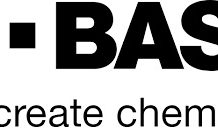In the fiscal year 2024, India emerged as a net exporter of bulk drugs, yet continues to rely heavily on imports for many antibiotic active pharmaceutical ingredients (APIs) produced via fermentation, according to the Economic Survey 2023-24.
The survey highlights that India’s dependence on imported APIs is primarily due to the lack of cost-effective domestic production alternatives. In FY24, India exported bulk drugs worth ₹39,632 crore, while imports totalled ₹37,722 crore.
The compound annual growth rate (CAGR) for bulk drug imports between FY22 and FY24 was 2.3%, compared to a 5.9% CAGR for exports. The survey noted that Production Linked Incentive (PLI) schemes for bulk drugs and pharmaceuticals have contributed to stabilizing import levels and enhancing supply chain resilience.
Specifically, the PLI scheme has strengthened fermentation-based manufacturing capabilities, leading to the domestic production of antibiotics such as penicillin G and clavulanic Acid. The scheme has approved forty-eight projects with a committed investment of ₹3,938.6 crore to support local manufacturing.
The survey also attributed the growth in exports to consistent innovation over the past five to six decades. Sustaining this growth will require bolstering biopharmaceutical manufacturing capabilities. Currently, India has around 60,000 generic brands across sixty therapeutic categories, accounting for 20% of global generic drug exports by volume.
Overall, pharmaceutical exports were valued at ₹2,19,439 crore in FY24, with the industry expected to reach $130 billion by 2030. The survey emphasizes that the next phase of growth in the pharmaceutical sector will require advancements in skills, the use of innovative technologies, and the establishment of a robust supply chain.
As reported by thehindubusinessline.com, additionally, the PLI scheme for medical devices has received positive feedback and has reduced the gap between the export and import of these devices. Domestic production has commenced for various medical devices, including CT-Scan machines, Linear Accelerator (LINAC), and Rotational Cobalt Machines.































